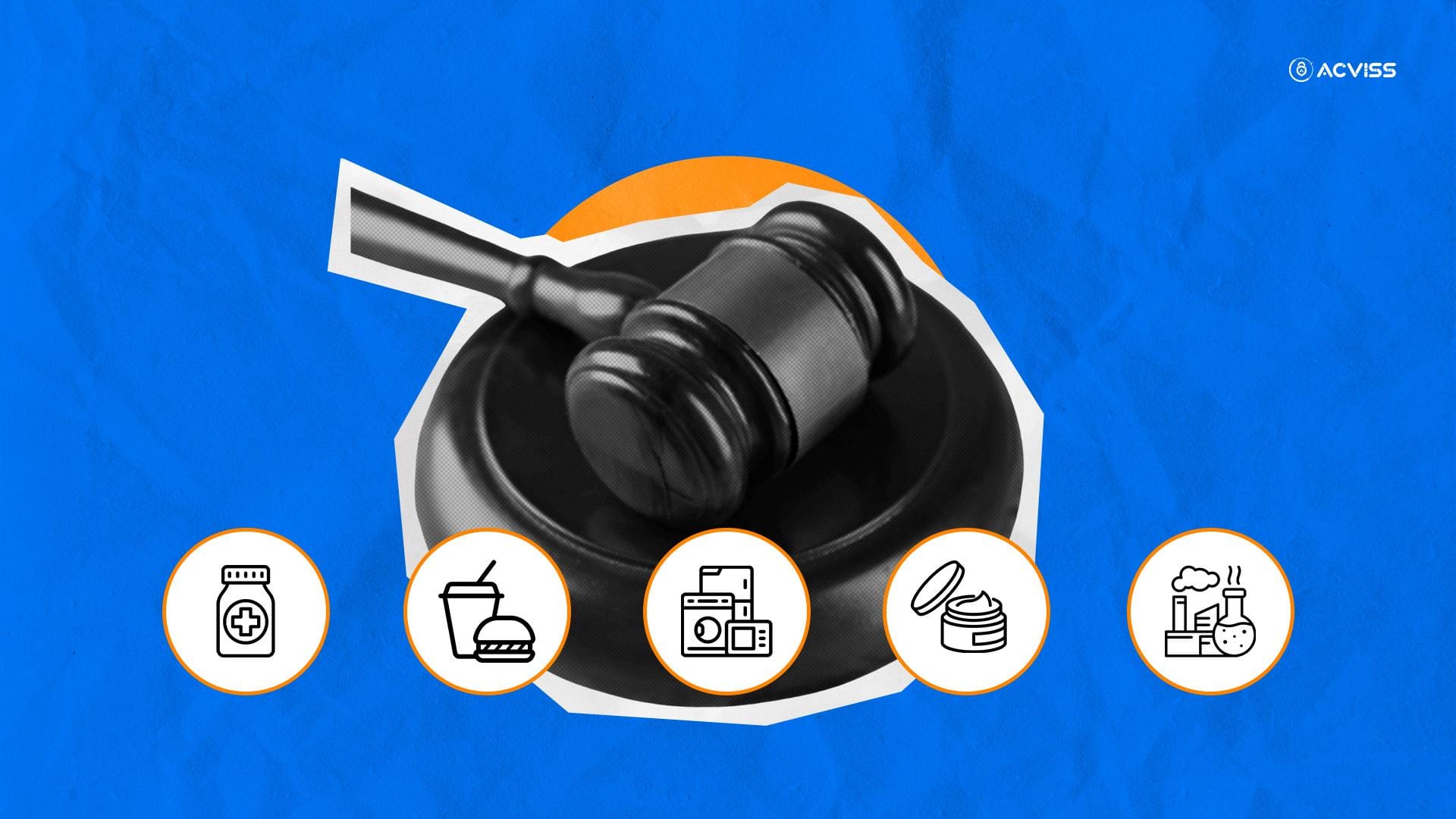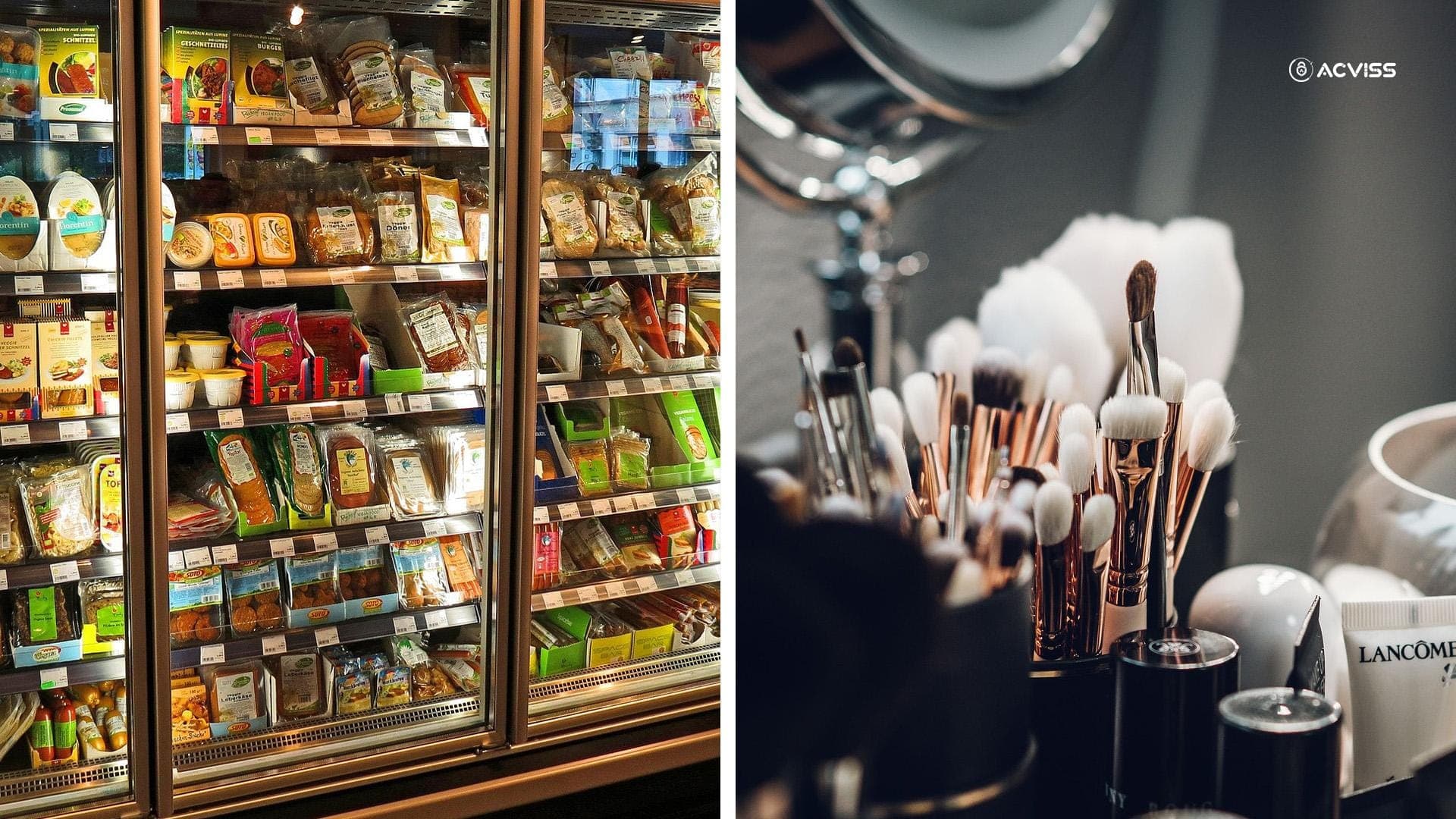Top Penalties for Non-Compliances in India Across 5 Key Industries

Non-compliance is no longer a back-office problem or a bureaucratic oversight. It’s now a high-stakes gamble that can derail industries, tarnish reputations, and shut down businesses overnight. In India, as regulatory frameworks tighten and enforcement mechanisms mature, industries are facing increasing scrutiny, not just in spirit, but in the form of swift, significant penalties.
From manufacturing and pharmaceuticals to FMCG, food processing, and electronics, penalties are no longer limited to fines; they now include criminal charges, product recalls, loss of licences, and even imprisonment. With compliance tied directly to consumer safety, international trade obligations, environmental concerns, and data security, organisations must understand what’s truly at stake.
Let’s unpack the top penalties imposed for non-compliance across five of India’s most tightly regulated sectors.
1. Pharmaceuticals: Heavy Fines, Seizures, and License Revocations

The pharmaceutical industry in India operates under one of the most robust regulatory regimes. The Drugs and Cosmetics Act, 1940 and its associated rules, combined with regulatory oversight from the CDSCO and state drug authorities, govern the entire pharmaceutical lifecycle—from manufacturing and labelling to storage and distribution.
Yet, violations remain frequent. A common compliance breach includes manufacturing substandard or misbranded drugs, not adhering to Good Manufacturing Practices (GMP), or exporting unregistered formulations.
When a pharmaceutical company is caught violating these regulations, the consequences are severe:
- The manufacturing licence can be immediately suspended or cancelled. In many cases, entire batches are seized and production halted until corrective measures are proven.
- Fines can reach ₹5 lakhs per offence, with compounded penalties in case of repeat violations.
- Criminal liability includes imprisonment of up to 10 years if the violation involves spurious or adulterated drugs, especially if they pose a risk to human life.
- Companies involved in international trade face bans or blacklisting from global regulatory bodies such as the US FDA or the European Medicines Agency, affecting global revenue.
Perhaps the most insidious cost is reputational damage. In the post-COVID era, consumer trust in pharma is fragile. One compliance slip can cause permanent loss of market share.
2. Food & Beverage: Seizures, Recalls, and Public Disclosure

Food safety violations have a uniquely visceral impact on public sentiment. In India, the Food Safety and Standards Authority of India (FSSAI) enforces compliance under the Food Safety and Standards Act, 2006. The authority conducts regular inspections, sampling, and lab testing of products, packaging, and even advertisements.
Non-compliance in this sector typically involves misleading labelling, expired stock in circulation, contamination (physical, chemical, or biological), or failure to meet hygiene standards in processing units.
The penalties are becoming increasingly public and punitive:
- Seizure and recall of products is one of the most immediate consequences. Large F&B brands have had to pull back entire stockpiles worth crores due to mislabelling or the presence of banned substances.
- Companies can be fined up to ₹10 lakhs for misleading advertisements, especially if the product is targeted at vulnerable groups like children or the elderly.
- If unsafe food causes injury, the responsible entity can face imprisonment of up to six years, with fines reaching ₹5 lakhs.
- FSSAI regularly publishes lists of defaulters on public portals, leading to irreversible brand reputation damage.
Given the direct impact on consumer health, authorities are expanding surveillance through tech-enabled inspections and real-time data collection, a signal that the margin for error is closing fast.
3. Electronics and Consumer Durables: BIS Violations and Criminal Liability

With India’s electronics market growing exponentially and government initiatives like ‘Make in India’ pushing for local manufacturing, compliance under the Bureau of Indian Standards (BIS) and Legal Metrology Act is non-negotiable.
Products ranging from mobile phones and air conditioners to smart TVs must be registered and certified before being sold in the Indian market. The catch? These standards are routinely updated, and non-compliance can happen due to ignorance as much as intent.
Key consequences include:
- Detention and destruction of non-compliant goods at ports, even before they reach warehouses or store shelves. This not only impacts revenue but increases logistic costs multifold.
- Penalties under the BIS Act can go up to ₹50,000 per unit, in addition to prosecution. Persistent violations can lead to criminal cases being registered against directors or responsible officers.
- Under the Legal Metrology Act, misdeclared MRP, incorrect labelling, or not mentioning the country of origin can result in fines of ₹1 lakh per SKU, per batch, and up to 1 year's imprisonment.
With digital marketplaces, non-compliance becomes even riskier. Regulators have begun tracking listings on platforms like Amazon and Flipkart, issuing takedown notices and penalty orders digitally within hours.
4. FMCG & Cosmetics: Misbranding and Toxic Ingredients

The fast-moving consumer goods sector has long operated at the intersection of speed, scale, and visibility. Regulatory compliance in FMCG and cosmetics is governed by multiple bodies: the Drugs and Cosmetics Rules (for cosmetic formulations), FSSAI (for edible items), and BIS (for packaging standards and product safety).
Common infractions in this segment include the use of unauthorised ingredients, misleading branding, incomplete declarations, and non-standard packaging, especially on fast-launch product lines.
Penalties here are deceptively aggressive:
- Selling cosmetics with banned ingredients can lead to imprisonment up to three years and a fine of ₹50,000 or more, depending on the severity.
- Packaging non-compliance (such as not using tamper-evident mechanisms) results in action under the Packaged Commodities Rules, often resulting in fines up to ₹1 lakh and withdrawal of the product from market shelves.
- Repeated violations can trigger permanent bans on particular SKUs or categories.
Importantly, the rise of counterfeit goods in the FMCG space has led to compliance scrutiny being extended to distributors and resellers, especially on digital platforms where fakes can circulate unchecked. Brands that fail to secure their product authenticity face compliance action not only from regulators but also from consumer forums and industry watchdogs.
5. Chemicals and Agrochemicals: Environmental & Criminal Penalties

The chemical and agrochemical sectors operate under a complex web of environmental, safety, and product standards, including the Insecticides Act, the Factories Act, and regulations from CPCB, MoEF, and state pollution control boards.
Failure to comply, whether it’s improper disposal of hazardous waste, unlicensed manufacturing, or using banned formulations, carries wide-ranging consequences.
- Environmental non-compliance can attract fines up to ₹1 crore, depending on the scale of damage and duration of violation. In severe cases, the National Green Tribunal can halt operations entirely.
- Under the Insecticides Act, manufacturing or distributing unregistered products can lead to up to 3 years in jail, along with fines.
- If there is contamination of groundwater or soil, companies may be held liable under the Environment (Protection) Act, 1986, facing both criminal and civil litigation, with directors being held personally liable.
- International bans are also a real risk, especially if exports are found to violate REACH or other global safety standards.
Chemical manufacturers also face compliance issues around labelling, batch numbers, usage instructions, toxicity warnings, and any deviation can result in forced recalls.
The Digital Angle: Compliance Meets Technology
As regulatory frameworks become stricter and digital enforcement tools get sharper, manual compliance management is no longer sufficient. Authorities are already deploying AI and blockchain-based tracking for food traceability, pharma batch verification, and customs clearances.
This is where companies like Acviss are stepping in. Acviss offers advanced, AI-powered anti-counterfeiting and compliance solutions for brands across industries. From tamper-proof labelling and secure product authentication to blockchain-based traceability, Acviss empowers brands to stay one step ahead of compliance breaches while safeguarding their reputation and customer trust.
Whether you're tracking batches across complex supply chains, detecting duplicate products online, or trying to ensure your product meets all regulatory labelling norms, Acviss delivers integrated solutions that reduce risk and reinforce trust.
Compliance Is No Longer a Checkbox. It’s a Survival Strategy.
For Indian businesses, non-compliance is no longer a distant, theoretical risk—it’s a daily, operational vulnerability. The penalties outlined across these five industries show just how swiftly violations are being detected and punished. With regulatory authorities turning digital, proactive compliance is no longer optional. It’s a fundamental part of operational resilience.
Whether you're a startup scaling up or a legacy brand, it’s time to stop thinking of compliance as a cost centre. Instead, view it as an investment in longevity. And if you're looking for a technology partner to make compliance seamless and fraud-proof, Acviss is ready to help.
Take the first step towards zero compliance risk and 100% authenticity. Talk to Acviss today.
